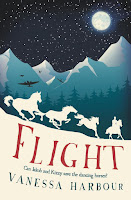Being able to trust your editor is so important. I became fully aware of this ten years ago this summer when I had to make some big decisions. At the time, I was working for the Golden EggAcademy (GEA) with aspiring writers, but also working with Imogen Cooper, the head of GEA, on one of my novels.
It
was a novel I had been working on for a very long time because it had been part
of my PhD. However, I couldn’t get the heavy feet of my PhD thesis out of it.
For me, it felt like a tick-box exercise and did what it needed to for the
degree. Following a discussion, Imogen and I decided it was time to walk away
from it. This is never an easy decision, particularly when you’ve been working
on a project for a long time, but sometimes it is the right one. It must be
done. Hilary Mantel once said, ‘The question is not who influences you, but
which people give you courage.’ Imogen was someone who always gave me courage.
She ensured I believed in myself and my work, as she did too.
Imogen’s
suggestion was to go away and write something new. Write whatever I wanted to.
However, I did feel a little lost. I knew how terrified my students felt when I
told them they could write about anything. Anything is an enormous subject.
This was also the first time in a very long time where I was writing something
without academic scaffolding supporting it where I discussed my reasoning
behind every creative decision. It really would be standalone. That in itself
was also terrifying. Could I remember how to be purely creative? Could I come
up with an idea? Imogen gave me the strength to be brave and the power to be
free. It was wonderful to have someone believe in me.
Out of that question came a nugget of an idea and a first line. ‘If Jakob sneezed, he could die.’ I sent the outline of the idea to Imogen to see if she thought it worked. She came back with ‘Yes, write it!’ That first line never changed. And so, Flight was born. Five years later the next month, it was published by Firefly (where I worked with another great editor, Janet Thomas).
If it hadn’t been for a great editor giving me the courage to be brave and walk away from a project to find a new story, my life would have been very different. Find the people that give you courage. That great editor.









